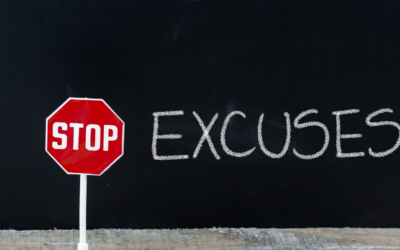Superior communication skills are crucial in both personal and professional settings. When you can effectively express your thoughts and ideas, you can build stronger relationships, avoid misunderstandings, and achieve your goals more efficiently.
However, mastering these skills requires continuous effort and self-awareness. In this article, we will explore various strategies to improve your communication skills, from understanding the importance of good communication to enhancing your verbal, non-verbal, and written communication abilities.
Understanding the Importance of Good Communication
Effective communication is a vital aspect of human interaction, playing a significant role in both personal relationships and professional settings. It serves as the foundation that connects individuals emotionally, allowing them to express their feelings, share experiences, and resolve conflicts. By developing practical communication skills, you can foster understanding, intimacy, and trust with your loved ones.
The Role of Communication in Personal Relationships
In personal relationships, effective communication is crucial for maintaining a healthy and thriving connection. It goes beyond simply exchanging words; it involves active listening, empathy, and the ability to convey your thoughts and emotions clearly. When communication is open and honest, it creates a safe space for individuals to express themselves authentically, leading to deeper emotional bonds.
Furthermore, good communication helps in navigating conflicts and disagreements. By openly discussing issues and concerns, couples and families can find common ground and work towards resolutions that satisfy everyone involved. It promotes understanding, empathy, and compromise, which are essential for building strong and lasting relationships.
The Role of Communication in Professional Settings
In the professional world, effective communication is essential for success. It is a fundamental skill that allows individuals to build strong teams, collaborate with colleagues, and interact with clients or customers. Clear and concise communication ensures that information is conveyed accurately, ideas are understood, and expectations are met.
Within a team or organization, effective communication fosters a sense of unity and cooperation. It enables individuals to share their expertise, contribute ideas, and work towards common goals. Effective communication also promotes transparency and accountability, as team members can openly discuss challenges, provide feedback, and address issues.
When interacting with clients or customers, communication plays a crucial role in establishing trust and building solid relationships. By effectively conveying information about products or services, addressing concerns, and providing exceptional customer service, organizations can enhance their reputation and create loyal customers.
Moreover, practical communication skills can significantly impact an individual's career progression. Those who can communicate effectively are more likely to be seen as competent and reliable, increasing opportunities for growth and advancement. Additionally, individuals who excel in communication often create a positive work environment, fostering collaboration, creativity, and productivity among their colleagues.
The reality is that good communication is essential in both personal and professional contexts. It is a skill that can be developed and honed over time, leading to stronger relationships, successful collaborations, and career advancement. By recognizing the importance of effective communication and actively working towards improving it, individuals can enhance their overall quality of life and achieve their goals.
Identifying Your Communication Weaknesses
Effective communication is a vital skill in both personal and professional settings. It allows us to express ourselves clearly, understand others, and build strong relationships. However, like any skill, communication can have its weaknesses. Recognizing and addressing these weaknesses is crucial for personal growth and improvement.
Self-Assessment Techniques for Communication Skills
One way to improve your communication skills is to start by self-assessing and recognizing your weaknesses. Take some time to reflect on past interactions and identify areas where you may have struggled. It could be that you find it challenging to articulate your thoughts, listen actively, or maintain eye contact.
When reflecting on your communication skills, consider the following questions:
- Do you often find yourself stumbling over your words or struggling to find the right words to express your thoughts?
- Are you able to actively listen to others without interrupting or becoming distracted?
- Do you maintain eye contact during conversations, or do you often look away?
By acknowledging these weaknesses, you can take targeted steps to overcome them. For example, if you struggle with articulating your thoughts, you can practice speaking in front of a mirror or join a public speaking club to build confidence and improve your speaking skills. If active listening is a challenge, you can focus on being fully present in conversations, avoiding distractions, and practicing empathy.
Seeking Feedback on Your Communication Style
Another effective way to improve your communication skills is by seeking feedback from others. Sometimes, we may not be fully aware of our own communication habits or how they impact others. Asking trusted friends, family members, or colleagues for honest opinions on your communication style can provide valuable insights.
When seeking feedback, it's essential to create a safe and non-judgmental environment. Let the person know you genuinely want to improve and value their input. Ask specific questions about your communication style, such as:
- Do you find that I often interrupt or talk over others?
- Do I come across as confident and clear when expressing my ideas?
- Do I actively listen and show interest in what others have to say?
By actively listening to their feedback and considering it, you can gain valuable perspectives and pinpoint specific areas for improvement. Remember, feedback is an opportunity for growth, and embracing it can lead to significant improvements in your communication skills.
Verbal Communication Strategies
Verbal communication is an essential skill in both personal and professional settings. It allows us to express our thoughts, share information, and connect with others more deeply. However, effective verbal communication goes beyond just speaking; it involves various strategies that enhance our speaking skills and promote better understanding.
Enhancing Your Speaking Skills
Improving your speaking skills involves more than just practicing public speaking. While practice is crucial, other techniques can help you become a more confident and articulate speaker.
One effective strategy is to organize your thoughts coherently before speaking. This involves logically structuring your ideas, ensuring a smooth flow of information. By organizing your thoughts, you can deliver your message more clearly and effectively.
Another critical aspect of enhancing your speaking skills is using appropriate vocabulary for your audience. Tailoring your language to suit the needs and understanding of your listeners can make a significant difference in how your message is received. Whether speaking to a group of experts or explaining a complex concept to a layperson, choosing the right words can ensure better comprehension and engagement.
If you want to enhance your speaking skills, consider joining a public speaking club or taking courses designed to boost your confidence and refine your delivery. These platforms provide a supportive environment where you can practice speaking in front of others, receive constructive feedback, and learn valuable techniques from experienced speakers.
Active Listening for Better Understanding
While speaking is an essential aspect of communication, active listening is equally crucial. It is not enough to simply hear what others are saying; active listening involves fully engaging with the speaker and demonstrating genuine interest in their message.
One way to become an engaged listener is to maintain eye contact with the speaker. Eye contact shows that you are paying attention and are fully present in the conversation. It also helps establish a connection and builds trust between you and the speaker.
Another effective strategy for active listening is summarizing what you heard. After the speaker has finished, take a moment to recap the main points or key ideas they shared. This not only demonstrates that you were actively listening but also helps you internalize and remember the information better.
Additionally, asking clarifying questions is a valuable technique for active listening. If there is something you didn't fully understand or need further clarification on, don't hesitate to ask the speaker. This not only shows your interest in the topic but also helps you gain a deeper understanding of their perspective.
By practicing active listening, you can develop a better understanding of others' perspectives, foster meaningful connections, and avoid misunderstandings. It is an essential skill for effective communication in personal and professional relationships.
Verbal communication strategies encompass various techniques that enhance our speaking skills and promote better understanding. By practicing public speaking, organizing our thoughts coherently, using appropriate vocabulary, and actively listening, we can become more effective communicators and build stronger connections with others.

Non-Verbal Communication Strategies
Effective communication is not just about the words we say but also the messages we convey through our non-verbal cues. Understanding and utilizing body language, facial expressions, and gestures can significantly enhance our ability to connect with others and create a positive and engaging communication environment.
Understanding Body Language
Body language is a powerful non-verbal communication that can speak louder than words. It encompasses our body posture, gestures, and facial expressions, which can convey messages and emotions to those around us. By paying attention to our own body language, we can project openness and confidence, making ourselves more approachable and creating a positive atmosphere for communication.
For example, standing tall with an upright posture and relaxed shoulders can convey confidence and assertiveness. On the other hand, slouching or crossing our arms can give off a defensive or closed-off vibe. By being mindful of our body posture, we can ensure that our non-verbal cues align with our intended message.
The Power of Facial Expressions and Gestures
In addition to body language, facial expressions, and gestures are crucial in non-verbal communication. Our faces are incredibly expressive and can convey various emotions and intentions. A genuine smile can instantly create a sense of warmth and approachability, making others feel more comfortable in our presence.
Furthermore, hand gestures can be used subtly to emphasize key points and add emphasis to our verbal communication. They can help to illustrate concepts, demonstrate enthusiasm, and engage our audience. However, it is essential to use gestures in moderation and ensure they align with cultural norms, as excessive or inappropriate gestures can be distracting or even offensive.
Mastering these non-verbal cues takes practice and self-awareness. By becoming more attuned to our own body language, facial expressions, and gestures, we can enhance our overall communication effectiveness. Additionally, being observant of the non-verbal cues of others can help us better understand their emotions and intentions, leading to more meaningful and successful interactions.
Remember, effective communication is a combination of both verbal and non-verbal elements. By harnessing the power of body language, facial expressions, and gestures, we can become more skilled communicators, fostering stronger connections and building positive relationships.
Written Communication Strategies
Improving Your Writing Style
Clear and concise writing is essential for effective communication in various contexts. Improve your writing style by practicing grammar and punctuation rules, using plain language, and structuring your ideas logically. Review your written work carefully before sharing it to ensure clarity and coherence.
Effective Email and Text Messaging Practices
In today's digital age, email, and text messaging have become integral communication tools. Craft your messages thoughtfully, keeping them brief, professional, and courteous. Use proper formatting, including clear subject lines and paragraphs, to make your messages easier to read and understand.
By implementing these strategies, you can steadily improve your communication skills and build stronger connections in both personal and professional settings. Remember, communication is a continuous growth journey, so be patient with yourself and practice regularly. Engage in meaningful conversations, actively listen to others, and be mindful of verbal and non-verbal cues. With time and dedication, you will become a more effective communicator and reap the rewards in various aspects of your life.
Explore the Path to Success with CorEthos
Thank you for journeying with us through this exploration of ideas. Your presence here is a testament to a shared passion for reimagining business, and it resonates with the very essence of CorEthos: bringing humanity back to business.
Perhaps the curiosity that brought you here still burns brightly, yearning for further discovery. In that case, we invite you to delve into our blog, where each article opens new doors to understanding, insight, and growth. They are tailored to leaders like you, eager to unravel the complex tapestry of today's business world.
If you find yourself intrigued by the delicate science behind communication and leadership, why not embark on a journey of discovery with our newsletter? Subscribing is like opening a treasure chest filled with wisdom that connects you to the essence of collaboration and community.
Intensify Your Leadership Journey with Our Mastermind Program
Our newly launched Mastermind Program provides a focused setting for tackling challenges like honing effectiveness, inspiring your team, and mastering the art of delegation. It's a unique space where business acumen meets human-centered values, delivered with the same quality and integrity you've come to expect from CorEthos. Ready to dive deeper into your leadership potential?
We Would Love to Get to Know Your Challenges Better!
Challenges in business? We see them not as stumbling blocks but as opportunities for transformation. Your unique path awaits, and it begins with a complimentary consultation with CorEthos. We'll build bridges over obstacles and forge a trail to success, leveraging our three foundational pillars.
Your adventure with CorEthos doesn't have to end here. Let's continue to build, learn, and grow together, reflecting on what makes your business uniquely human. We are here to be your compass, guiding you through the challenges and celebrating the triumphs. Let's begin this exciting journey today.



